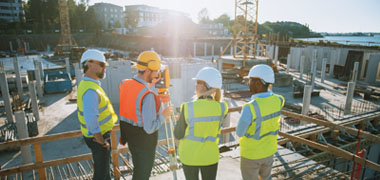
AI Occupational Exposure score unavailable For more insight, research the specific tasks and skills required for the role.
Explore all careersA Site Engineer coordinates civil construction projects, ensures timely progress, manages resources, monitors costs, and maintains stakeholder communication.
Get qualified to work as a Site Engineer with a course recognised across Australia. Speak to a training provider to learn more.
In Australia, a full time Site Engineer generally earns $2,270 per week ($118,040 annual salary) before tax. This is a median figure for full-time employees and should be considered a guide only. As you gain more experience you can expect a potentially higher salary than people who are new to the industry.
 Courses.com.au Team
Courses.com.au Team
This industry is likely to see strong growth in employment numbers in coming years. There are currently 74,700 people working in this field in Australia and many of them specialise as a Site Engineer. Site Engineers may find work across all regions of Australia.
Source: Australian Government Labour Market Insights
 Courses.com.au Team
Courses.com.au Team
If you’re interested in a career as a Civil Designer, consider enrolling in a Bachelor of Engineering (Civil) (Honours). This course explores topics such as sustainable design, engineering in society, engineering maths and physics, field investigation, modelling, structural design, stress and failure analysis, road and pavement engineering, structural theory, hydrology and hydraulics, concrete and steel structures and geotechnical engineering.
 Courses.com.au Team
Courses.com.au Team



A Site Engineer coordinates work on civil engineering constructions. You might specialise in a particular type of project or be employed to oversee developments such as roads, bridges and pipelines. Site Engineers ensure work is progressing on time and monitor project costs. You’ll make sure equipment and materials are available when required.
Site Engineers should be organised and have strong multitasking skills. You’ll need to be a good communicator and be confident liaising with a range of stakeholders. Site Engineers require excellent technical skills and good analytical abilities. You’ll need to be a good problem solver and be able to work as part of a team.